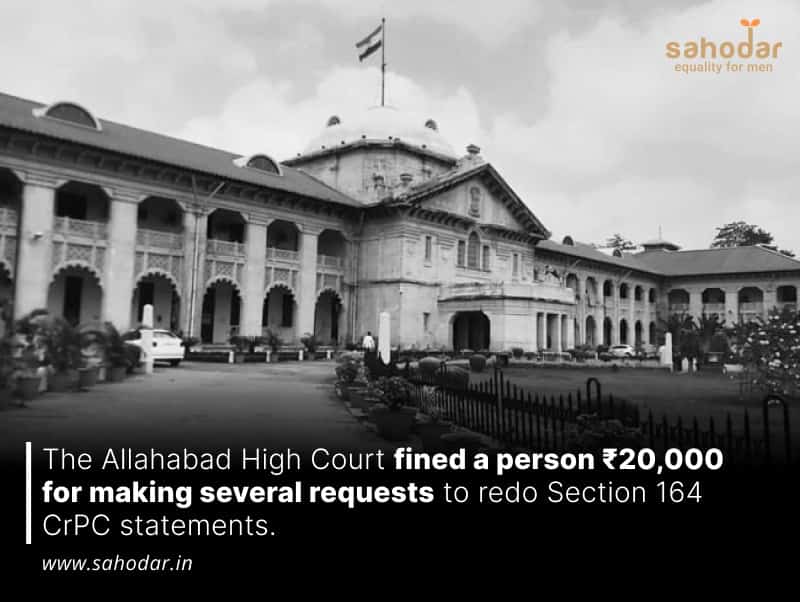The victim or the IO cannot keep on filing such applications for recording of statements any number of times without any good cause as it would destroy the sanctity of such statements, the Court said.
The Allahabad High Court has recently fined a litigant ₹20,000 due to their repeated requests for new statements under Section 164 of the Code of Criminal Procedure (CrPC) in the case of Manorama Singh v State.
The Court made it clear that although there’s no outright ban on submitting requests for fresh Section 164 statements, such requests shouldn’t be made without a valid reason. Justice Jyotsna Sharma also pointed out that frequent re-recordings of such statements could weaken their importance and reliability.
The Court clarified that a statement can be re-examined in specific situations, such as when new information emerges or to provide additional details about a previous statement. Nevertheless, the judge emphasized that the practice of routinely re-recording statements should be avoided.
“In my view, if I.O. or the victim is given a free hand and things are left to their whims, the investigation may go haywire. The consequences can be far reaching. The system of law has to follow a discreet and prudent path. Any attempt to discredit the system must be foiled,” the Court added.
Section 164 of the CrPC pertains to the recording of confessions and statements by various individuals involved in a criminal trial, including the complainant, victim, witnesses, and the accused.
In this particular case, a woman, who is the complainant and alleged victim, had requested her statement to be recorded for the third time. She claimed to have experienced molestation and endured mental, physical, and economic exploitation.
The complainant’s statement had been recorded twice by different magistrates during the investigation. About 11 days after the second statement, she asked for her previous statements to be accurately re-recorded, and she also requested a video recording.
Additionally, the Investigating Officer (IO) had submitted a similar application to record her statement for the third time, but this request was denied by the Chief Judicial Magistrate (CJM) in Agra. The CJM’s decision was based on the fact that different judicial officers had previously recorded the complainant’s statements, and there was doubt regarding the accuracy of her claims.
Subsequently, the complainant appealed to the High Court to have her statement re-recorded for the third time. However, the High Court concurred with the CJM’s perspective and dismissed the plea while imposing a ₹20,000 penalty, aiming to discourage the petitioner (the complainant) from pursuing such practices.
“In my opinion there were no good reasons to record statement of the victim for a third time. The court concerned rightly dismissed her application. My opinion is that the petitioner unsuccessfully tried to to use the law as a tool in her hand. Such practice needs to be discouraged therefore, while dismissing this petition, I impose a cost of Rs. 20,000/- on the petitioner, which shall be deposited in favour of State,” the High Court ordered.

